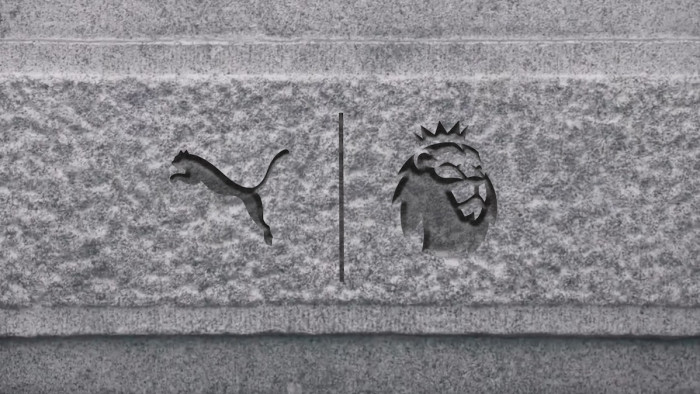Thank you, Undertaker - a true American icon and genuine sporting great
In the end there was only one man he couldn't beat - Father Time


Father Time is undefeated.
This weekend saw the death of an American icon. The passing of a sporting legend that carried an industry and elevated it to new levels for over 25 years.
This past Sunday saw a grizzled gunslinger saddle up for one final duel, battling a hungry young lion and his own failing body, and eventually coming up short. After taking on heroes, villains, legends and pretenders to the throne, our gunslinger finally succumbed to Father Time and failed.
This past Sunday saw The Undertaker stop being the undead cowboy of numerous adventures, and finally give way to the 52-year-old man with a hip condition known as Mark Calaway.
This past Sunday, at Wrestlemania, we saw the undead monster who did this to Mick Foley...
...look more human than any of us.
Professional wrestling lives in a constant state of paradox. Its roots trace back to the start of the 20th Century when funfair owners figured out more people would watch outlandish “fake” wrestling matches than authentic Greco-Roman style bouts. Professional wrestling is a combination of live stunt work and acting by way of soap opera. Regular people put on OTT personas and do their best to look like they're hurting each other, while trying their damn hardest to keep each other safe.
You cannot be a good wrestler without being good at “selling” – looking like you’re hurt. That is to say, wrestling is a sport where you can’t be considered great unless you are talented at making the other person look good.
It’s a sport where what you do in the ring is only 33% of how good you are. You need to be good at performing outside the ring, and there’s a whole other 33% of what Hall of Famer wrestler Bret Hart dubbed “intangibles”. Wrestling has lasted for over 100 years and people still don’t know one of the key ingredients of what makes someone a great.

Wrestling is stupid. It is every good and evil story ever told distilled into a point so simple that an eight-year-old can understand. It’s entertainment that understands the greatest stories can be said, not in what people say, but in how they move.
That’s what made The Undertaker one of the greatest American icons of them all.
The Undertaker’s position serves as a fixed point in professional wrestling. He wrestled Hogan, he wrestled Stone Cold Steve Austin, and he wrestled John Cena, along with every star in-between. He was a fixed point in everything. There may be new Presidents, Prime Ministers and Premier League winners, but The Undertaker was always around. Still wrestling. Still pretending to be an undead hero (unless he was a badass biker). No matter what was going on in your life, you knew that The Undertaker was about, fighting someone over something. And better yet, you knew he would not lose come April time.
Because when it came to Wrestlemania, the Super Bowl-styled mega show for professional wrestling, The Undertaker would size up against a prospective challenger and win. Every year, without fail, heroes, villains, champions and weirdos would lay claim to The Undertaker’s undefeated streak, and all would fall. Many men tried, many men failed. The Undertaker did not lose at Wrestlemania.

To those that say “wrestling is fake, the record counts for nothing”, allow some wider context . Firstly, to work in a professional sporting capacity for 21 years is ridiculous. As your body ages, injures become more frequent. After two decades you’re supposed to have accumulated enough money that looking after a family is more important than lacing up your boots. In the art of professional wrestling these risks are tenfold. Grapplers aren’t particularly known for living too long – a combination of drink, drugs and devastating bumps taking their toll. That the Undertaker has managed to perform year in, year out without skipping a beat is to be applauded.
Your average professional wrestling bout puts a wrestler's body through pressures similar to those of an NFL defensive linemen or professional rugby union player during a match. Except where our oval-balled sporting contemporaries will spend less than 20 minutes of game time in immediate physical activity, and are allowed several weeks off during off seasons, your squared circle athlete performs for more than 300 days in grueling, often bloody matches, with no equivalent of an off season. The ending may be predetermined, but the stunt work that goes into a match is very real. And while The Undertaker’s workload has lessened over the years (he nearly exclusively wrestles ‘Mania these days before disappearing off-screen again), there are not many men in their 50s risking life and limb for the purposes of our entertainment on an annual basis.
Secondly, next to no one gets to be at the top of the mountain of their sport for 21 years. In professional wrestling, the most popular grappler normally wins. Bad guys (or heels) normally only prevail to set up lucrative rematches later down the line. And at Wrestlemania, the biggest night of the wrestling calendar, it is normally the good guys (babyfaces) who take the title and give fans a good note to go home on. For over 25 years Mark Calaway played a variant of an undead demon, the baddest man in the West, or a badass American biker. The Undertaker faced off against cooler heroes, he faced off against edgy popular anti-heroes, he faced off against bona fide wrestling legends who changed the face of pop culture, (a lot of rappers owe Ric Flair cheques) and he beat them all. The times may change, The Undertaker winning at Wrestlemania did not.
But while The Undertaker could defeat many an enemy, there is one thing he could never beat. Father Time is undefeated.
And on 6 April, 2014, the impossible happened. At Wrestlemania 30, The Undertaker lost.
Watch the video above. Really watch it and note the ending as former UFC heavyweight champion Brock Lesnar finishes The Undertaker and gets the winning three count. The reaction of the crowd is as close as you will get to shocked silence from a stadium audience in a post-internet era. Thousands of fans recoiling in awe at what they had just witnessed, wondering if it was a botch (an error in the performance), a con, or the end of days as they knew it. Twitter swallowed itself as a legion of wrestling fans bitched, moaned and mourned together. The BBC reported it – a fake fight involving a man dressed as a demon with a predetermined end – deeming it newsworthy for how many people it had shocked.
The Undertaker was never the same after that match. Wrestling wasn’t. Many fans (including wrestlers The Undertaker had offered to lose to before) believed The Streak should have been eternal. Then we heard word that The Undertaker immediately passed out from a real life concussion backstage. From that moment on he went from being eternal storyteller to… your dad.
Oh he was great. He was fantastic. He’d still sort you out when you were in a bind and you knew he was a sucker for Jack Daniel’s, but The Undertaker became human.
The Undertaker kept wrestling after that defeat. He took on Brock Lesnar again in some amazing fights, he fought a younger demon, The Eater of Worlds, Bray Wyatt in some so-so matches but it was all so… weird.

He looked more punch drunk after matches. He’d lost a step. All of his great moves – the Snake Eyes, the Old School, the Last Ride, the Chokeslam – they all looked a little slower, a little less lethal than before.
When The Undertaker was 21-0 at Wrestlemania, he looked like he could do anything. Once he became 21-1, he looked like the rest of us.
And so came Wrestlemania 33 this Sunday, and rumours buzzed that this was his last match. And in professional wrestling tradition, you’re supposed to lose your last match.
In wrestling you lose your last match as a way of passing the torch. By losing, you help the career of someone who will continue wrestling. You lose on Sunday, the person who beat you comes out on Monday and says “I’m so badass, I retired a man on Sunday”.
So by the time classic commentator Jim Ross marched ringside, fresh out of retirement (and still grieving the tragic real life passing of his wife) for the final 30 minutes of Wrestlemania on Sunday, fans knew what was about to happen. They knew they were about to watch The Undertaker’s last match. We all knew we were about to witness something special and tragic in equal measure.
The Undertaker’s final match was slow, ponderous. It was more competent than many of his worse matches, but watching a fight that was essentially “this man is too old to defend himself” saddened us all. There was a bit where his opponent, Roman Reigns, twice tried and failed to lift Undertaker off the ground for what looked like a Tombstone Piledriver. The Undertaker missed his cue to jump, the move got botched and Roman decided to hit him with a Superman Punch instead. It was a mistake but felt meaningful. The Undertaker was losing because his body couldn’t do it anymore. The Undertaker may win most of his matches but Father Time remains undefeated.
By the end it took an untold number of spears and Superman Punches and a tackle through a table to put the Undertaker down but Roman finally did it. The Undertaker lost. And then grown men started crying.
He stood to receive the crowd’s adulation, and eventually left his gloves, coat, and hat in the ring. He made one final march up the stage, tears in his eyes and ours as we all realised he was never coming back. One more constant in our lives was departing and we were all bereft. It was a fitting end for a hero like The Undertaker, going out on his shield like a good soldier would have wanted, but as the lights went out, we all realised there was a little less magic left in the world.
Father Time remains undefeated. Thank you, Undertaker.
[Images: WWE]
Latest
Related Reviews and Shortlists









